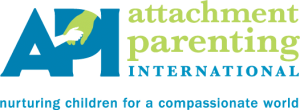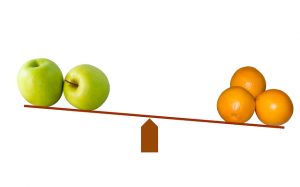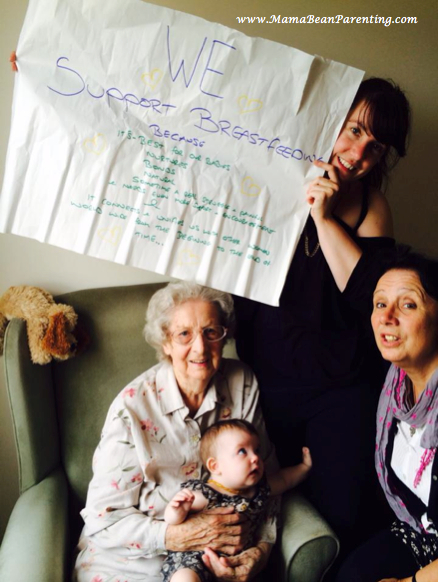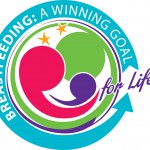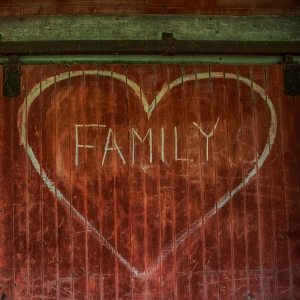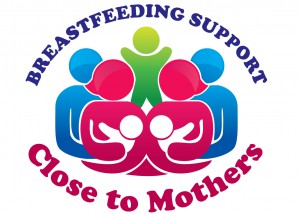 The experience of being a mom can be challenging, exhausting, rewarding, and inspirational. There are plenty of trained experts and professionals who lend their guidance on ways to navigate through the complex web of motherhood, but oftentimes, the most grounded support comes from those who have been down in the trenches — so to speak: everyday mothers.
The experience of being a mom can be challenging, exhausting, rewarding, and inspirational. There are plenty of trained experts and professionals who lend their guidance on ways to navigate through the complex web of motherhood, but oftentimes, the most grounded support comes from those who have been down in the trenches — so to speak: everyday mothers.
Today, we bring you words of advice from mothers who shared with us the wisdom and insight they acquired along the way, on their motherhood path.
What is the best parenting advice you would offer another mom?
Kassandra Brown: “My best parenting advice is to allow your perspective to broaden, your heart to soften, and your mind to notice how lucky you are to have exactly the children you have. What we believe, we perceive. By believing it, you will see evidence more and more often that proves how true it is that you are lucky to have your children.”
Lisa Feiertag: “The advice that I would share with other moms is how important it is to remain flexible and to know that everything will change even when you think it is all static. Growth naturally causes things to shift, and it is a lot easier if you are moving in that flow instead of resisting it. Also, try to not take anything personally or to personalize your child’s actions and emotions. When you find yourself feeling upset look into why that is. What is being triggered internally? Parenting is an opportunity to heal all our unmet childhood wounds, which is one of the reasons why it is not an easy job.”
Megan Bell: “Let go of ‘should’ and truly connect with and listen to your children. They are our best teachers. Offer them what they need when they need it, and know they won’t need it forever.”
Rochelle Kipnis: “Our children grow up so fast, so cherish every moment you get with them. Make memories and know that they grow up too quickly. Hold on to the moments and take it slow. Enjoy every day that you’re blessed to be here on earth with your children.”
Effie Morchi: “Above all, listen to your heart and trust your instincts; they are there for a key reason. When you are faced with a challenging moment, take a deep breath and think, ‘that too shall pass…’ and when you are faced with a blissful moment, take a deep breath, and let it wash over you — it will serve as nourishment for the road ahead.”
Jillian Amodio: “Honestly, there’s a lot of advice floating around. Five different people will give you 5 different answers. The best advice I can give you is truly none at all. Just follow your heart, it will never lead you wrong. Mamas, you are wiser than you will ever know, more important than you will ever realize, and cherished beyond measure. Hug those little ones and love yourself, because even when you don’t feel like it, I’ll bet that you are doing an AMAZING job.”
Kelly Shealer: “My advice to other moms is to trust your instincts. Trust what feels right for you and your children. You know your child best, so you can give them a unique gife that make them really happy.”
Inga Bohnekamp: “It is a lot about connection and trust. Find ways to over and over again connect with your child — and yourself. Try to see her with fresh, curious eyes every day and try not to make too many preconceived assumptions. She will continue to surprise, to amaze, and to challenge you in her very own unique ways as she grows up and faces the challenges of the world she lives in. Connect with yourself, with your intuition, with your very own inner wisdom. Most of the answers you will ever need are already inside of you, somewhere — you might just need to uncover them and then listen to them, which can be scary. And while, of course, trusted sources of support are always important — repeat after me: We cannot do it all by ourselves! — always remember that every child, every parent, every situation, and every relationship is different and changes from moment to moment, which makes it highly unlikely for a ‘one size fits all’ approach to actually be a good fit.”
Katelynne Eid: “Trust your gut. With each little one, I’ve learned to trust myself even more. There are endless information and opinions out there, but nothing beats a mother’s intuition. Even if you don’t think you have it, I promise you do!”
Shoshana Hayman: “Although modern society has devalued the role of mothers, know that your role as a mother is of paramount value in the world. No one can be for your children what you are to them — their primary attachment figure, which gives the optimal context for healthy human development. Teach them lovingly, both your boys and your girls, that the most important roles they will fulfill one day will be to parent their own children. Mothers need to be confident in believing that nurturing their children, throughout the years that they are growing up, helps shape a healthy and peaceful society more than any daycare, school, or educational program ever can.”
————
A Mother’s love is a gift that gives forever and her legacy is life
In gratitude, consider a tribute to a Mother in your life while helping a mother in need of support at the same time.
It’s a gift that that keeps on giving because you help mothers receive much needed information and support.
This is the heart of API.
We invite you to share a gift of love that gives on in her honor.
Happy Mother’s Day from Attachment Parenting International
————

